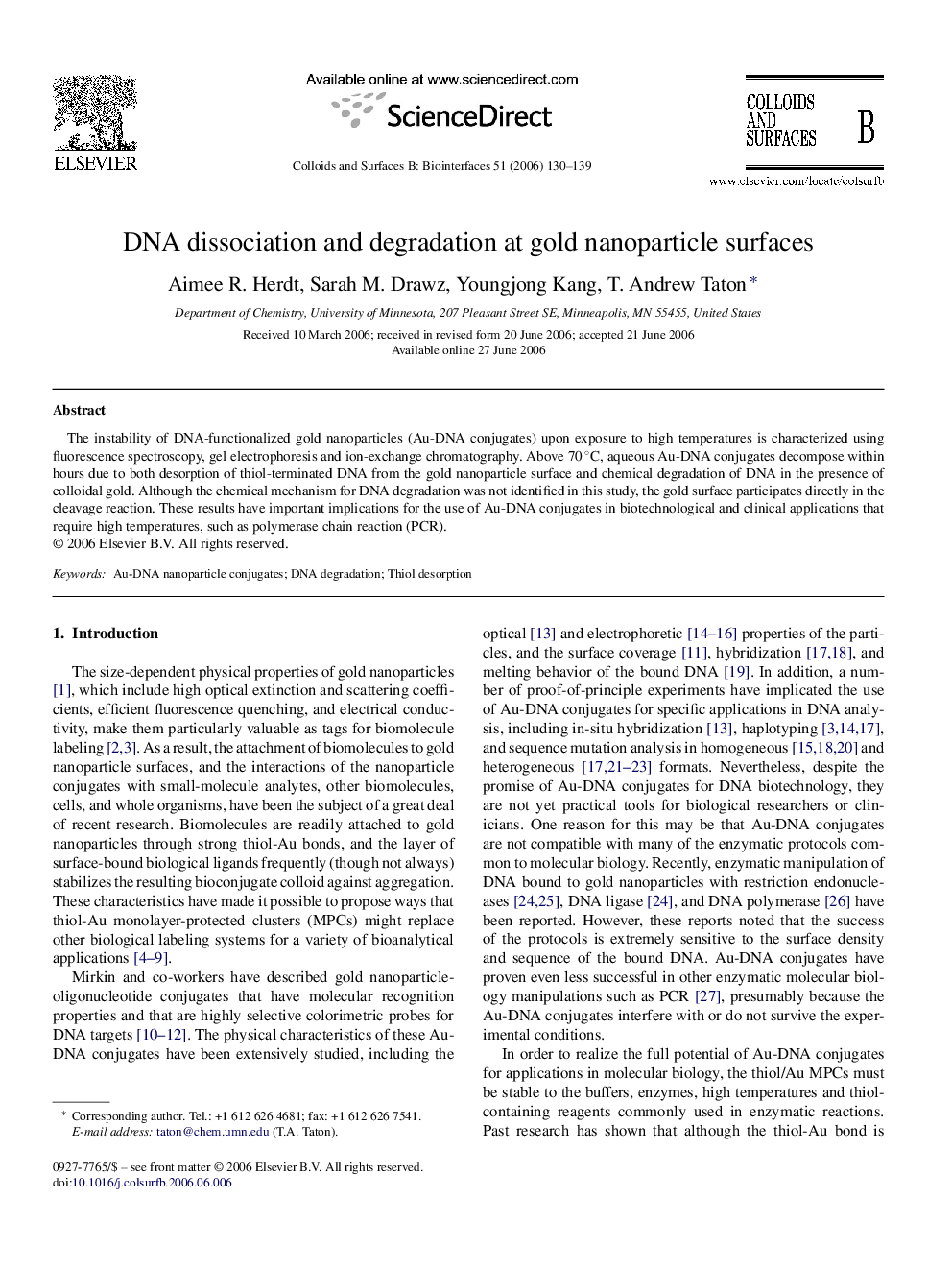| Article ID | Journal | Published Year | Pages | File Type |
|---|---|---|---|---|
| 602998 | Colloids and Surfaces B: Biointerfaces | 2006 | 10 Pages |
The instability of DNA-functionalized gold nanoparticles (Au-DNA conjugates) upon exposure to high temperatures is characterized using fluorescence spectroscopy, gel electrophoresis and ion-exchange chromatography. Above 70 °C, aqueous Au-DNA conjugates decompose within hours due to both desorption of thiol-terminated DNA from the gold nanoparticle surface and chemical degradation of DNA in the presence of colloidal gold. Although the chemical mechanism for DNA degradation was not identified in this study, the gold surface participates directly in the cleavage reaction. These results have important implications for the use of Au-DNA conjugates in biotechnological and clinical applications that require high temperatures, such as polymerase chain reaction (PCR).
